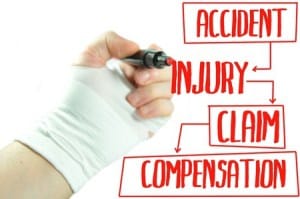 A worker has an accident. Someone may or may not be hurt. Perhaps the incident could have been averted with a decent random testing program, but it’s too late to think about that.
A worker has an accident. Someone may or may not be hurt. Perhaps the incident could have been averted with a decent random testing program, but it’s too late to think about that.
Note to self: “Add random testing program to next week’s company meeting agenda.”
The Legal Advantage of Post-Accident Testing
Now what? Will there be a claim? What’s it going to cost us?
In Illinois, the 2011 Workers Comp Act affords employers some protections if an employee who is hurt in a workplace accident tests positive for drugs or alcohol. Safety-conscious employers and their insurers are on top of that — usually.
But there’s more to it.
Having a post-accident drug testing policy in place can have other benefits as well. A 2011 study* found that when a company implements post-accident testing, workers comp claims fall, especially among certain types of employees —specifically, full-time, male, tenured workers.
Why this group? And aren’t POST-accident tests too late?
Unintended Consequences: Fewer Claims or Hidden Risks?
In the “unintended consequences” department, many potential claims may go unreported because the employee does not want to be subjected to the drug or alcohol test. Anecdotal research supports this as well.
Is this good? That’s debatable. It is possible that the unfiled claims are for fairly minor injuries. It reduces cost and conflict and, of course, that’s a good thing.
On the other hand, these potentially injured employees might be avoiding the test for a reason. If they value the job more than the claim, and they know they won’t pass the test …. That’s bad.
Combining Post-Accident and Random Testing for a Safer Workplace
Supplementing a post-accident testing policy with random testing is the best solution and random tests are the single best deterrent to substance abuse. Plus, post-accident tests will help with the few that may slip through.
Ask yourself: do I want to work next to someone who may be impaired? Probably not.
There’s one good way to reduce those odds: Test them. Test them before you hire; test them randomly while they work for you; and test them following any workplace accident. Will you catch all of them? Not likely, but you’ll sleep better, and if, God forbid, there is an accident, you’ll be in a far more defensible position.
Contact InOut Labs for help. This is what we do.
*Source: Does Post-Accident Drug Testing Reduce Injuries? Evidence from a Large Retail Chain, Alison D. Morantz, Stanford Law School, and Alexandre Mas, University of California

